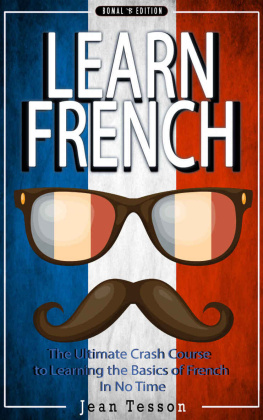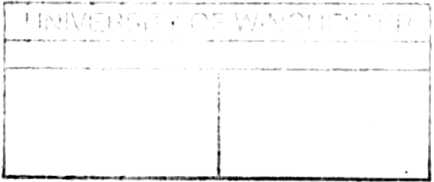The French Educator Celestin Freinet
The French Educator
Celestin Freinet (1896-1966)
An Inquiry into How His Ideas Shaped Education
Victor Acker
LEXINGTON BOOKS
A division of ROWMAN & LITTLEFIELD PUBLISHERS, INC. Lanham Boulder New York Toronto Plymouth. UK
LEXINGTON BOOKS
A division of Rowman & Littlefield Publishers, Inc.
A wholly owned subsidiary of The Rowman & Littlefield Publishing Group, Inc 4501 Forbes Boulevard. Suite 200 Lanham, MD 20706
Estover Road
Plymouth PL6 7PY
United Kingdom
Copyright 2007 by Lexington Books
All rights reserved No part of this publication may be reproduced, stored in a retrieval system, or transmitted in any form or by any means, electronic, mechanical, photocopying, recording, or otherwise, w ithout the prior permission of the publisher
British Library Cataloguing in Publication Information Available
Library of Congress Cataloging-in-Publication Data
Acker, Victor, 1940
The French educator C elestin Freinct (1896-1966) an inquiry into how his ideas shaped education ' Victor Acker
p. cm
ISBN-13: 978-O-739I-I923-5 (cloth alk paper)
ISBN-10: 0-7391-1923-0 (cloth alk paper)
ISBN-13 978-0-7391-1924-2 (pbk. : alk paper)
ISBN-10 0-7391-1924-9 (pbk. : alk paper)
1. Freinet, Celestin 2 EducatorsFrance- Biography. 3 EducationPhilosophy LTitle.
LB775 F762A257 2007
370 92dc22
[B]
2006038900
Printed in the United States of America
The paper used in this publication meets the minimum requirements of American National Standard for Information SciencesPermanence of Paper for Printed Library Materials, ANSI/NISO Z39 48-1992.
CONTENTS
viii
Foreword
Celestin Freinet, an educational philosopher of the level of Montessori, Piaget, Dewey, Rousseau, and others who inspired entire educational programs, remains quite unknown in the English-speaking world.
Dr. Ackers masterful scholarly study of the life and times of Freinet provides a broad analysis of the French educational perspectives into which Freinet was born, a detailed analysis of the life and experiences of Freinet as he lived through various educational revolutions as well as WWI and WWII, and most importantly, a complete chronological analysis of the works of Freinet that have long laid dormant and untouched in archives across France.
This book is the fruit of Dr. Ackers two-year study of the archival materials of Freinet that are quite spread across France. Supported by grants from the French government, in addition to the current historical study. Dr. Acker produced an earlier educational theory' book detailing Freinets educational theories and their relation to broad educational philosophy. This current study broadens Dr. Ackers study into the tumultuous life and times of Freinet and describes the background of the tumult.
A Chinese curse or blessing is: May you be bom into interesting times! Freinet was so mix-blessed and Dr. Acker details the slings and arrows as well as the good fortunes of Freinet. In the previous century the French educational system moved from a church dominated system to a government run system. The transition from a central-authority system to a more democratic system was not smooth with lumps of authoritarianism left everywhere. Freinet sought to eliminate many authoritarian lumps by introducing a student centered seminar-type environment.
Most educational theorists targeted the middle and upper classes in cities, presumably following the money trail. Freinet targeted his reforms across the board, but in particular, at poor and rural educational systems that had almost no resources. He reasoned that any school could afford a printing press since he could buy one himself. And the postal service was universal and cheap. Freinet got most of his lumps by trying to eliminate authoritarian and centralized lumping tendencies in educational systems, the Communist party, the Church, and so on.
Dr. Ackers comments on who did and who did not cooperate with his research and who provided and who withheld documents is illuminating and shows that even today anti-Freinet tendencies abound. Freinets formal education was limited owing to WW1 and the injuries he sustained, but driven as he was, Freinet, always a voracious reader, fitted his ideas into the broad panoply of ideas that have dominated and dogged education through the ages.
Some Freinet scholars have suggested that Freinets basic ideas were not original with him, and some have even claimed that his main contributions to education were not theoretical or philosophical but merely technical. Freinet brought a printing press into the classrooms of France, and indeed he was not the first, as Dr. Acker points out. Freinet had teachers show students how to use the printing press to produce booklets and printed records of classroom activities, and again, in this he was not the first.
But Freinet was also an educational visionary that saw the printing press as a tool to enable students across many schools to be engaged in an active dialogue by adding individual creativity and group interaction into the process. Freinet undertook to solve the technical problems of coordinating the usage of printing presses in classrooms across France by having the students, in a class, produce materials that could quickly be sent through the postal system to other students in other distant schools to exchange information and perspectives.
Today, using modems, computers and the Internet, our definition of quickly has become abbreviated, and the printing press has given way to the word processor. But these are simply technical advances over Freinets resources. Freinets basic ideas carry over almost in toto into the modern communication world.
Freinet developed educational theories and pedagogical techniques for integrating the students of a class with each other, for incorporating the teacher as an advisor rather than as the source, and for enabling students to become active agents in the creation and dissemination of information among equals. In reading Freinets ideas about the dissemination of information among peers written long ago. I was struck by how similar is the wording of the scholarly guidelines of the National Science Foundation, the National Endowment for the Humanities, and other such major granting agencies of the ideas of dissemination of research in scholarly journals and professional communications as well as the concepts of peer review.
















